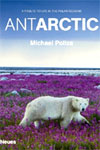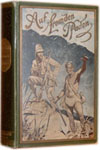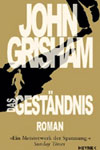A Letter from Mr. Franklin to Mr. Peter Collinson, F.R.S. concerning the Effects of Lightning. In: Philosophical Transactions of the Royal Society of London, vol. 47, pp. 289-291. [Ibid] A Letter of Benjamin Franklin, Esq; to Mr. Peter Collinson, F.R.S. concering an electrical Kite, pp. 565-567.
FRANKLIN, Benjamin
Verkäufer
Milestones of Science Books, Ritterhude, Deutschland
Verkäuferbewertung 5 von 5 Sternen
![]()
AbeBooks-Verkäufer seit 10. August 2011
Beschreibung
Beschreibung:
4to (218 x 170 mm). Entire volume 47, for the Years 1751 and 1752 offered: [18], 571, [17] pp., 20 engraved plates (19 folding), folding table, text illustration and diagrams. Bound in contemporary sprinkled calf, spine with gilt lettered morocco label, red-sprinkled edges, lower board with cental gilt supralibros and blind tooling (upper board and joints restored, spine soiled and darkend with gilt decoration mostly rubbed off, board leather scratched, corners worn). Text somewhat browned, minor dust-soiling, some scattered spotting of text and plates. Collated and complete. ---- FIRST EDITION of both letters in which Franklin describes his lightning experiment and in which he proves that lightning is an electrical phenomenon. "Benjamin Franklin was the first American to win an international reputation in pure science and the first man of science to gain fame for work done wholly in electricity. His principle achievement was the formulation of a widely used theory of general electrical 'action' (explaining or predicting the outcome of manipulations in electrostatics: charge production charge transfer, charging by electrostatic induction). He advanced the concept of a single 'fluid' of electricity, was responsible for the principle of conservation of charge, and analyzed the distribution of charges in the Leyden jar, a capacitor. He introduced into the language of scientific discourse relating to electricity such technical words as 'plus' and 'minus,' 'positive' and 'negative,' 'charges' and battery. By experiment he showed that the lightning discharge is an electrical phenomenon, and upon this demonstration (together with his experimental findings concerning the action of grounded and of pointed conductors) he based his invention of the lightning rod . . . Franklin devised a second experiment to test the electrification of clouds, one which has become more popularly known: the lightning kite. Franklin reported this experiment to Collinson in a letter of 1 October 1752, written after Franklin had read 'in the publick papers from Europe, of the success of the Philadelphia-Experiment for drawing the electrick fire from clouds by means of pointed rods of iron erected on high buildings. . . .' Actually, Franklin appears to have flown his electrical kite prior to having learned of Dalibard's successful execution of the sentry-box experiment. The kite letter, published in the philosophical Transactions, referred to the erection of lightning rods on public buildings in Philadelphia. The lightning experiments caused Franklin's name to become known throughout Europe to the public at large and not merely to men of science. Joseph Priestley, in his History . . . of Electricity, characterized the experimental discovery that the lightning discharge is an electrical phenomenon as 'the greatest, perhaps, since the time of Sir Isaac Newton.' Of course, one reason for satisfaction in this discovery was that it subjected one of the most mysterious and frightening natural phenomena to rational explanation. It also proved that Bacon had been right in asserting that a knowledge of how nature really works might lead to a better control of nature itself: that valuable practical innovations might be the fruit of pure disinterested scientific research." (DSB V, pp. 129, 134-135). - Visit our website to see more images!. Bestandsnummer des Verkäufers 003427
Bibliografische Details
Titel: A Letter from Mr. Franklin to Mr. Peter ...
Verlag: C. Davis, London
Erscheinungsdatum: 1753
Einband: Hardcover
Zustand: Very Good
Auflage: 1st Edition
AbeBooks ist ein Internet-Marktplatz für neue, gebrauchte, antiquarische und vergriffene Bücher. Bei uns finden Sie Tausende professioneller Buchhändler weltweit und Millionen Bücher. Einkaufen bei AbeBooks ist einfach und zu 100% sicher — Suchen Sie nach Ihrem Buch, erwerben Sie es über unsere sichere Kaufabwicklung und erhalten Sie Ihr Buch direkt vom Händler.
Millionen neuer und gebrauchter Bücher bei tausenden Anbietern
Neue und gebrauchte Bücher
Neue und gebrauchte Exemplare von Neuerscheinungen, Bestsellern und preisgekrönten Büchern. Eine riesige Auswahl an günstigen Büchern.
Antiquarische Bücher
Von seltenen Erstausgaben bis hin zu begehrten signierten Ausgaben ? bei AbeBooks finden Sie eine große Anzahl seltener, wertvoller Bücher und Sammlerstücke.
Versandkostenfreie Bücher
Hier finden Sie viele hunderttausend neue, gebrauchte und antiquarische Bücher, die Ihnen unsere deutschen und internationalen Händler versandkostenfrei liefern.







